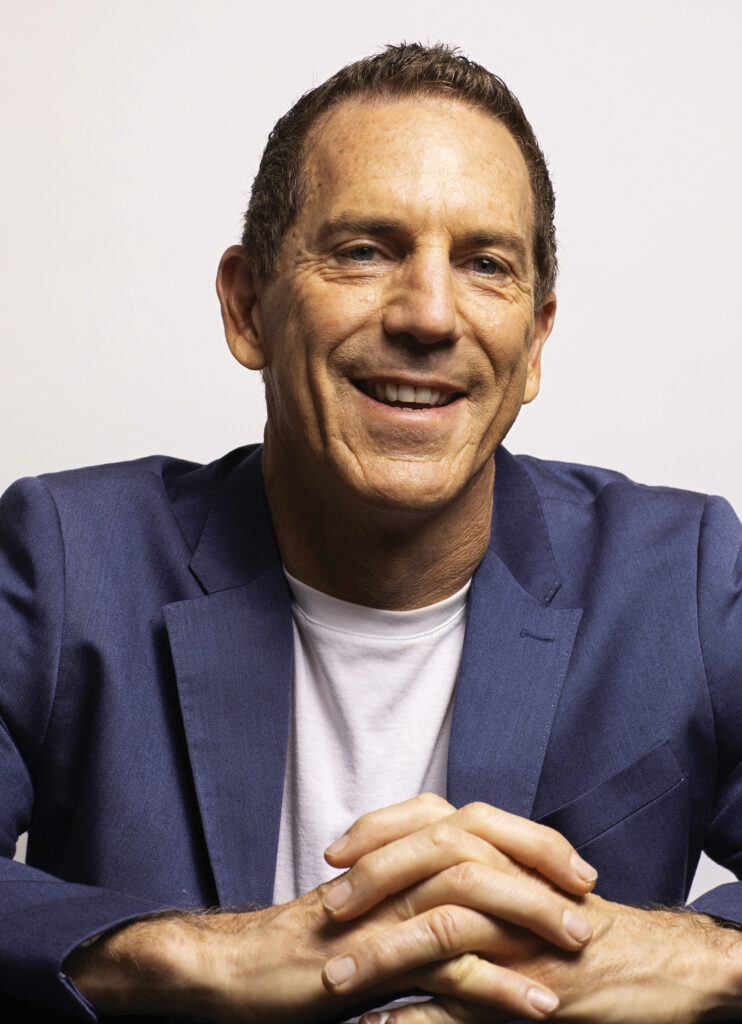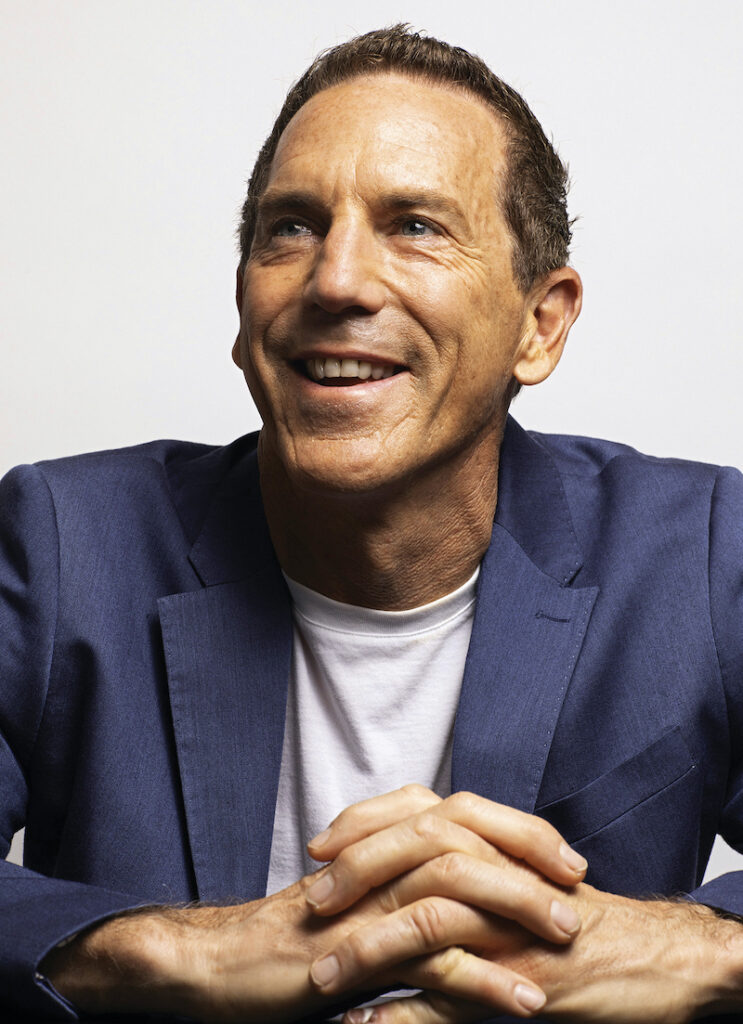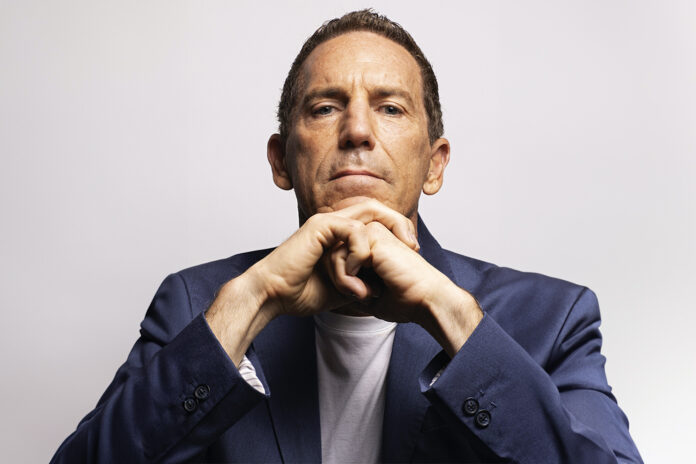Sunderstorm Inc. Chief Executive Officer Cameron Clarke embodies a rare autodidactic blend of scientific rigor, entrepreneurial spirit, and deep-rooted passion for natural healing. With an academic foundation in science and engineering at Stanford University, Clarke’s career trajectory has been anything but conventional. His journey has spanned diverse fields including international politics, commercial trade, and technology startups, showcasing his multifaceted interests and relentless curiosity.
Clarke’s fascination with the power of natural wellness began more than twenty years ago when he became attuned to the importance of nutrition. The interest blossomed into a profound exploration of plant-based medicine, propelling him into a unique odyssey that took him from the laboratories of molecular biology to the remotest jungles of the Amazon and Africa.
“I lived in the Amazon and African jungles for months with indigenous tribes, learning their way of life and working with elder shamans,” he said, adding immersion in the lifestyles and traditions of indigenous peoples gave him extraordinary access to ancient wisdom about the healing properties of plants.
The experiences not only deepened his understanding of traditional medicine but also solidified his belief in the transformative potential of plant-based therapies. It was his belief in the power of plant medicine that ultimately spurred Clarke’s decision to enter the cannabis industry.
“About a decade ago, I was studying molecular bio[logy] and working on engineering algae to clean polluted rivers when I saw the opportunity developing with cannabis,” he said. “My interests in science, plant medicines, global business, and natural healing converged into the launch of Sunderstorm in 2015.”
Since then, Sunderstorm has become one of the rare manufacturers to thrive in California’s brutal market. The company’s flagship brand, KANHA, is the third-best-selling edibles brand in the state and the fourth-best-selling in Massachusetts. Monthly, according to market tracker Headset, the brand sells more than $4 million worth of gummies across 900 locations in four markets: the two previously mentioned plus Illinois and Nevada.
Last year, in partnership with THCG Group Ltd., Sunderstorm opened a state-of-the-art manufacturing facility in Thailand. With 70 million citizens and 40 million tourists annually, Thailand is expected to be a large medical and recreational market. The University of the Thai Chamber of Commerce expects the country’s combined cannabis and hemp market to grow 15 percent annually, reaching 43 billion Thai baht (approximately US$1.2 billion) by 2025.
Then, in May 2024, Sunderstorm secured strategic partnerships to launch two wellness lines in Japan, a nascent market that saw 500-percent growth in cannabinoid product sales over the past four years, according to The Japan Times. KRx by KANHA and KANHA Wellness will be distributed to retailers and clinics by one of Japan’s oldest and largest consumer packaged goods companies.
Clarke’s journey—and Sunderstorm’s success on a now-international stage—is a testament to the power of following one’s passions across disciplines and cultures. His leadership at Sunderstorm is not just about building a successful business, but also about pioneering a movement that merges traditional wisdom with modern science to promote holistic healing.
As the industry continues to evolve worldwide in both perception and regulation, Clarke’s diverse background positions him as a unique and influential voice—one whose insights are grounded in a lifetime of learning, exploration, and innovation.

How do you go about evaluating new markets, and what is your growth strategy?
Given the challenges in attracting growth capital today, we take a very disciplined approach to evaluating new markets. One of the significant hurdles in this industry is the need to establish operations in each state. For a company like ours, which is meticulous about every detail of manufacturing and strives for perfection in every batch of edibles and vapes, the capital expenditure to launch [a new] market can be daunting.
We believe our products need to taste and function the same whether purchased in Boston or Bangkok. This is a heavy lift when you must operate production facilities in many markets. Fortunately, we have the most sophisticated [enterprise resource management] systems implementation I’ve seen in cannabis. This allows us to scale quickly and efficiently. Making great edibles is difficult, but we never veer from our commitment to making beautiful, delicious edibles.
Most international markets are medically legal right now. Do you see them adopting adult use anytime soon?
Not really. Most international markets are still focused on medical cannabis. We love the wellness aspect of the industry, and we are happy to see the global market is ripe for focusing on that. For example, we will be opening a Kanha Clinic with traditional Thai medical doctors on staff in the coming months in Thailand. We are excited about this prospect. While we’re eager to see adult-use cannabis go global, I think it’s going to take some time.
In your opinion, what’s the most underestimated international market worth exploring right now?
There’s a lot happening globally, but I’m really interested in Brazil. I think it has huge potential, but it’s going to take time to develop.
What about the most over-hyped?
That’s a tough one. Perhaps Colombia? I have been surprised at how slowly this market has developed, and there has been a lot of interest there over the years.
Where, both in the United States and internationally, are you trying to expand your brands? Why those markets?
We are focusing on newer East Coast markets in the U.S. because they are not yet overwhelmed. Internationally, we are looking anywhere we can get a foothold. While the international markets are still in their infancy, we have a great opportunity to build global brand recognition through exports from Thailand.
What are your criteria for expanding Sunderstorm and KANHA’s presence?
My definition of a brand is trust between the consumer and the manufacturer. We do not believe we can build this trust without manufacturing our products ourselves. This is the single biggest challenge in new markets for us. It requires capital, fierce attention to detail, commitment not to sell products that are out of spec no matter the cost, and an incredible team of engineers, along with [research and development], quality control, and production staff who never compromise on our promise to the consumer.
Our philosophy is to always retain control of our manufacturing. We believe that no licensee will be as committed to the quality and precision of our products as our own KANHA production teams. Consequently, we target markets that are large enough—typically $1 billion plus—and have not yet been saturated by low-cost, low-quality edibles. We also prefer markets with 150 to 300 retailers, as this is a manageable number to service effectively. Our focus on premium customer service means that our own sales and marketing teams are in stores every day, providing the necessary support in this challenging industry. Our strategy is to proceed with humility, taking our time to ensure we can meet our high standards.
Beyond North America, we have recently launched in Thailand, where our products are now available in more than 100 retail locations within just the first few months. KANHA has become the top-selling edible in most of these stores. This success in Thailand marks a pivotal step in our global expansion strategy. We have also secured a partnership to enter the Japanese hemp market, with a launch planned in the near future.

Thailand serves as a strategic springboard for us to establish KANHA as a global brand. Unlike the fragmented U.S. market, our single facility in Bangkok enables us to serve customers worldwide efficiently. The potential for growth is vast, and we are enthusiastic about bringing our brand to as many new markets as possible. This international expansion is a critical component of our growth strategy over the next few years, alongside our efforts to enter new U.S. markets.
We have also begun offering hemp-derived delta-9 products with the same level of care and safety in U.S. markets where we currently do not operate. As these diverse markets gradually integrate, KANHA will become accessible to tens of millions of consumers around the globe.
Speaking of hemp… How would you describe the relationship between the U.S. hemp and cannabis industries? How might that relationship evolve over the next three to five years?
We entered the hemp market about a year ago to help build our brand in markets where we do not have licensed operations. We see this as a great opportunity. Frankly, my understanding is the U.S. cannabis, hemp, and illicit markets combine into a $100-billion opportunity.
Unfortunately, regulatory and taxation inconsistency have created barriers to the free flow of capital and goods. That has made it difficult for licensed operators and investors. Over time these barriers will dissipate, and the markets will slowly evolve into well-defined markets that are more fluid. A limited number of brands will dominate in the future, because they will have figured out how to work through the challenges of winning consumers in each segment while maintaining relevance and cost efficiencies. These brands are playing the long game and are already building brand equity today. Those who try to gain short-term market share only through a low-price strategy and don’t invest in brand-building or cost efficiencies will be left behind.
Where do you stand on the future of hemp-derived minor cannabinoid products? Do you envision Sunderstorm expanding its product line to include more hemp-derived, non-THC products?
We are quite bullish on this segment, and we are already selling fully legal products in markets where we are not licensed through our KanhaLife.com website. This is an exciting moment for us, because we can grow from millions of consumers to tens of millions. We are very careful to abide by regulations and support our retailers in our licensed states.
I have learned the hemp lobby is quite strong [on a national level], and I predict low-dose, hemp-derived edibles and beverages are here to stay. We may see some bifurcation of the markets based on potency in the future.
Multiple U.S. states have tightened regulations surrounding hemp-derived THC products; in some places, intoxicating hemp products have been banned altogether. How has this impacted your evaluation of the market for hemp-derived THC products?
My prediction is that this is part of the ebb and flow of full-blown cannabis legalization. My science experience taught me evolution is not linear. Social change happens in spurts, and there’s a natural struggle involved. Cannabis legalization is no different. We no doubt will see the regulatory pendulum create some havoc as the industry moves toward free-flowing capital and goods. Did we ever believe three years ago that we would be seeing unlicensed [hemp-derived] delta-9 THC beverages on tap in breweries in Texas in 2024?
My advice is not to get hung up on the short-term tensions and flexing as these markets evolve. Look at the past and down the road, and you will notice more stable trendlines.
You actually have recent experience with that kind of “tension and flexing.” Not long after Sunderstorm opened its facility in Thailand, the Thai government flirted with reclassifying cannabis as a narcotic.
This is another example of the natural tensions among forces of evolution and social change. When we entered the California market in 2015, the market had been chaotic for years as the revolutionaries fought for destigmatization of the plant. The chaos in Thailand feels the same to me. It requires a steady hand but quick tacks of the ship to sail through rough waters.
Our advantage is that our partners are politically well connected and were one of the first five medical license holders in 2019. This gives us a leg up. Navigating is difficult, but if we can rely on these advantages, then we can overcome future challenges more successfully.

Over the past several years, many U.S.-based cannabis companies have had a hard time raising money, both in public markets and from private sources. Has that been true for Sunderstorm?
Yes. The dearth of capital has slowed our growth. However, our story is a good one, because both [co-founder] Keith Cich and I have startup experience in our past. We know capital can dry up overnight. We have been very focused on managing our cost structure from inception. That’s why we have invested so heavily in infrastructure, systems, and automation. We manage our costs down to pennies in every aspect of our business. This is why we can maintain profitability despite challenges.
We also know the capital spigot can turn back on in an instant. We are ready to tell our story to any investors who believe in the future of this industry and recognize the power of brands.
In your conversations with investors, what are they most focused on when they consider putting money into a business?
Having raised money in multiple ventures in the past, I recognize investors want to see a balance between topline growth and bottom-line profitability. I also had a dotcom that survived through the chaos in that industry. I learned quickly that you watch every penny, focus on systems to drive efficiencies, and never get over your skis.
This industry is littered with companies that didn’t build a stable base or didn’t know how to manage their costs and focused on short-term goals instead of long-term profitability. That business model is just gambling with investor money. I remind investors brands will be the biggest winners in this industry and to look at our attention to detail in every aspect of our business from production to accounting. It’s a well-oiled machine ready to scale with some fuel.
The industry’s dynamics have changed over the past five or so years. How has that affected Sunderstorm’s business model?
Five years ago I was expecting the overheated market to begin slowing, and that would drive poor operators out of business. COVID-19 changed the dynamic overnight and propped up the industry for two years.
Since then, we have seen the confluence of the costs of overregulation, raw material cost increases, market decline, new entrants using low-price strategies as a wedge to drive out industry veterans, and the dearth of capital. We have also seen the hemp boom. Together, they have created an intense environment for operators in mature markets. We have had to be extra-cautious in how we handle our business and fiercely attentive to every nuance. We have certainly been surprised by the degree of the intensity, but it’s made us even stronger in our commitment to perform well and win. It’s also made us even more sensitive to controlling our own destiny as much as we can. We have a great team that is committed to our corporate objectives. I am proud to lead them and grow KANHA as a global brand.
How will rescheduling change the industry?
It’s very difficult to build a brand without fluid access to markets. I’m hopeful rescheduling will grease the skids, but I think it’s too hard to make any predictions about how this situation will evolve. I’ve been telling everyone this industry can move in any direction at any time. We all need eyes in the back of our heads.
What are some of your strategic priorities moving forward—for both yourself as CEO and the company as a whole?
This year we launched our FX line of “smart gummies.” These are targeted to specific effects and are formulated by doctors. We have been planning this for many years, but we finally felt the industry was ready for functional products this year, and we’ve heard incredible feedback from our consumers, who want more. We will continue to add products that help consumers overcome conditions that impair their ability to live great lives.
I’ve also been working this year to improve how our team communicates, shares knowledge, and acts on that knowledge. I am a firm believer that the complexities of this industry require us to absorb as much data and knowledge as possible—for both me and Sunderstorm. By doing these things, we can make good decisions and avoid pitfalls. We have certainly made costly mistakes in the past; it’s impossible not to in this industry. However, I know insight will help us avoid traps and improve our performance.
Gummy Mania
Sunderstorm sells more than $4 million in product monthly across 900 locations in four markets: California, Massachusetts, Illinois, and Nevada.
Through July 2024 (the most recent data available), the company’s Blue Raspberry Tranquility Gummies 10-Pack (50mg CBD, 50mg THC, 50mg CBN) consistently ranked as its number-one product, selling more than 26,000 units monthly. The rest of the top five, in order:
Sleep Marionberry Plum Gummies 10-Pack (150mg CBD, 100mg CBN, 50mg THC)
Hybrid Watermelon Gummies 10-Pack (100mg)
Sativa Cherry Gummies 10-Pack (100mg)
Indica Strawberry Gummies 20-Pack (100mg)
(Source: Headset)











